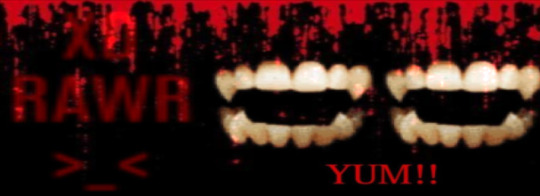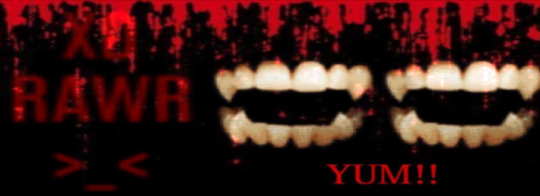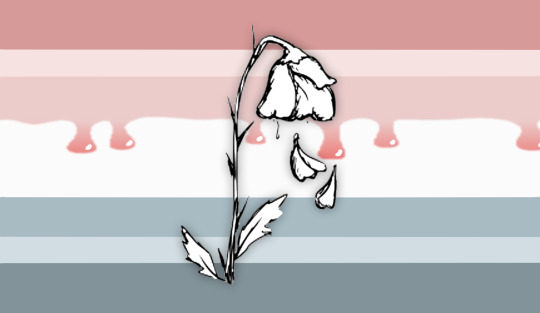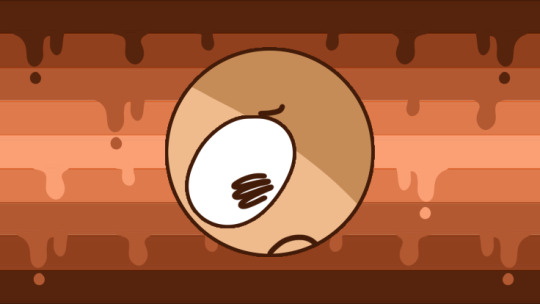Don't wanna be here? Send us removal request.
Note
hi! i was thinking, order as a term for a group of symptoms seems to be a bit weird, considering the other, already existing meanings of the word that are not so similar. what would you think of the usage of the word "blankorder" in place of that (similar to how "blankqueer" works)? of course, i'm not saying that the word "order" in that meaning is totally wrong, but it can cause some confusion. why im sending this ask is because i was thinking about it and wanted to share my thoughts >3<
Oooh, yeah I think blankorder does work well. I honestly wasn't sure about order either, I just couldn't really think of anything better.
3 notes
·
View notes
Text
Here.
is there a MUD/condition for when you have difficulty distinguishing dreams from reality?
21 notes
·
View notes
Note
am i allowed to identify with muds if i'm anti-radqueer /genq
if this somehow leaves anon please dont post it
Yes. Anyone can use MUDs regardless of any stances.
Generally speaking I believe that goes for any term. I use terms made by anti-radqueer's sometimes so it would be quite hypocritical for me to try to gatekeep my terms from them.
3 notes
·
View notes
Text

Quirk Induced Plurality ( QIP )




( no image ID, help is appreciated )
Quirk Induced Plurality is a MUD in the MHA universe where someone’s plurality is caused by their quirk.
[ I saw this on Pinterest so this is a recoin. Original coining ( link ) ]

9 notes
·
View notes
Text

Soul Corruption
( Soul Corruption )


『 Soul Corruption is a Medically Unrecognized Sickness wherein one’s soul struggles to stay intact because of its structural integrity being compromised, usually due to one or more of several factors. 』

Possible stressors which could cause Soul Corruption include:
⁕ divine interference or judgement
⁕ demonic disturbance or possession
⁕ extreme overuse of magic/abilities/powers/etc.
⁕ having one’s soul used as “power source”
⁕ losing or altering one’s humanity
⁕ unstable “reviving mechanics”
⁕ reviving too many times
⁕ soul-leeches or soul-devourers
⁕ soul trauma from past and/or current lives (usually in combination)
⁕ a failed or improperly enacted ritual

SYMPTOMS ARE:
✧ inexplicable chest pains, either seemingly random or during use of supernatural abilities.
✦ erosion of physical health and slow loss of access to one’s 6 senses (6th being first)
✧ occasional episodes of weakness and loss of awareness (partial or total)
✦ irregular, but frequent, unexplained fainting spells
✧ a “hunger” to feed energy, lifeforce, or blood off of those one holds close
✦ difficulty breathing and chest tightness
✧ slower healing, both natural and supernatural
✦ loss of access to supernatural abilities, usually one at a time, starting with the more powerful ones
✧ lethargy and exhaustion throughout the day




Taglist: @flagqueer @mudarchive @angelic-archival
(Ask to be added if you wish!)

9 notes
·
View notes
Text

╭— ⊹ — · · ·· ✧ ·· · · — ⊹ —╮
★ Cyclical Affective Regulation Disorder (CARD): is an underrecognized disorder of personality from a medical point of view that is characterized by a wide range of emotional fluctuations
It includes changes in self-esteem, activity level, appetite, sleep patterns, and relationships with others
Diagnostic features Individuals with "Cyclical Affective Regulation Disorder" often exhibit the following symptoms:
1) Frequent or episodic changes in self-esteem, such as sudden shifts from feeling good to feeling bad.
2) Changes in activity, such as going from being overly energetic to being listless.
3) Fluctuations in appetite, from overeating to undereating.
4) Disturbances in sleep patterns, such as insomnia or excessive sleeping.
5) Changes in relationships with loved ones, friends, or acquaintances.
6) Changes in the intensity of interest in hobbies


*:.。. .。.:*・゜゚・*☆*:.。. .。.:*・゜゚・*☆*:.。. .。.:*・゜゚・*☆

15 notes
·
View notes
Text

╭— ⊹ — · · ·· ✧ ·· · · — ⊹ —╮
★ Fictional Character Obsessive Disorder (FCOD) is an underrecognized personality disorder with a medical point of view, which is characterized by a strong obsession with a fictional character, which leads to the deterioration of everyday life
Diagnostic signs of person with "Fictional Character Obsessive Disorder" often show the following symptoms:
1) Jealousy and hatred: this can manifest itself in the form of strong feelings of rivalry and envy towards other fans/creators/other characters in the same universe as their favorite character
2) Strong hyperfixation on the character (hyperfixation does not have to be constant. It can be episodic)
3) Obsessive thoughts that blur the line between reality and fiction. For example: they may believe that their favorite character harbors feelings of hatred or contempt towards them, which leads to auto-aggression or even suicidal thoughts


*:.。. .。.:*・゜゚・*☆*:.。. .。.:*・゜゚・*☆*:.。. .。.:*・゜゚・*☆

19 notes
·
View notes
Text
Fluctuating Fragmented Identity Disorder

Fluctuating Fragmented Identity Disorder is a life-long pyschological, dissociative disorder where individuals experience reoccuring, episodic shifts in an individual's sense of self and identity which can vary in intensity and severity every few months or so (commonly 3–6 months). These identity shifts are accompanied by profound emotional and cognitive disturbances, including chronic boredom, pervasive numbness, derealization, depersonalization, dissociation, and depressive episodes.
FFID has some similarities towards DID (Dissociative Identity Disorder) but FFID—unlike DID—does not form distinct “alters” but feel like fragmented or fluctuating facets of the same identity.

Individuals with FFIS may experience the following
Identity Shifts — The core feature of FFID is experiencing shifts in their identity and sense of self. This can range from subtle changes in interests, hobbies, likes and dislikes to severe changes such as changing one's whole self (i.e name changes, gender identity, sexuality, etc), questioning fundamental beliefs about oneself, or one’s place in the world. These identity shifts can fluctuate in intensity as well, individuals with FFID experiencing an identity break may feel as though their identity shifts can impact very little of their identity, or their whole existance. These identity shifts can be very distressing and exhausting.
Chronic Boredom and Numbness — Between identity shifts, individuals may feel a pervasive sense of boredom, emptiness, or emotional numbness. This usually is more experienced during the "null" phase of an identity break.
Dissociation — Dissociative episodes during identity ahifts involve disruptions in memory, awareness, or perception. These may include “losing time,” difficulty recalling important personal information, or feeling like an outside observer to one’s own thoughts or actions.
Depersonalization — Episodes of feeling detached from one’s body and perceiving the external world as unreal or dreamlike frequently occur, often more intense during identity shifts.
Depression and Insecurity — The intense, prolonged nature and confusion around self-identity can fuel feelings of hopelessness, low self-worth, and anxiety, especially when identity shifts disrupt relationships or functioning.
Hypersensitivity — Individuals may experience heightened sensory experiences, such as hypersensitivity to light, sound, or touch during shifts, or maybe their sensory experiences may null/become numb.
Sleep disturbances — FFID may cause an individual to develop insomnia during indentity reestablishing.
Somatic symptoms — Headaches, muscle tension, or gastrointestinal discomfort often accompany intense episodes.
Memory Fragmentation — Noticable memory gaps or “blackouts” relating to personal history or recent events.
Existential Dread — A chronic sense of emptiness and questioning of reality, self, and purpose.

Identity shifts commonly have four stages or phases.
The Null Identity Phase — This phase is characterized by a pervasive sense of emptiness and emotional void. The individual feels a profound lack of self-definition or coherent identity—almost as if their “self” has evaporated or become inaccessible.
This is the baseline or “low ebb” period where the core sense of who they are is obscured. Individuals during a Null Identity Phase may experience feeling of hollowness/voidness, intense emotional detachment and numbness, apathy towards others and themself, amensia, feel as though they uave fragmented into "nothing", hopelessness, and low motivation.
This phase usually lasts a few weeks and up to a month.
The Identity Break Phase — This phase is marked by sudden and often distressing fragmentation of the self. The individual experiences noticeable shifts or “breaks” in identity — partial dissociations where certain aspects of personality, beliefs, memories, or emotions feel alien or separate.
These identity breaks vary in intensity and visibility. The conmon signs of an identity break are severe mood swings, confusion about one's personal history, heightened anxiety, existential distress, and self-doubt, dissociation, derealization, and depersonalization though not as severe as the null identity phase, intrusive flashbacks or fragmented traumatic memories that surface unexpectedly, feeling "lost" in time, and feeling as though the self as fractured into multiple competing parts.
This phase usually lasts five days.
The Identity Reestablishing Phase — In this phase, the individual attempts to regain coherence and stability in their sense of self.
This phase is a period of reintegration and reconciliation between fragmented identity parts, they form together and become a complete identity that the individual will become for a temporary moment. Signs of someone going through an identity reestablishing is: increased self-awareness, feeling grounded and present in the moment, rebuilding core values, goals, and morals, reduced anxiety and dissociation, and increased motivation to engage in society.
This phase usually lasts months.
The Identity Crash Phase — This phase happens when a severe breakdown or “crash” after the fragile self-cohesion was achieved in the reestablishing phase. It’s a crisis point where identity fragmentation overwhelms coping capacities, and symptoms exacerbate dramatically.
The identity crash phase can be traumatic to some people, as losing a sense of identity is distressing and frightening to most. Signs of an identity crash include intense emotional dysregulation, severe dissociative episodes comparable to the null identity phase, extreme confusion and amnesia, self harm, panic attacks or anxiety attacks, and physical symptoms such as headaches, migraines, and gastrointestinal issues. This phase happens usually after they are triggered they factors that are listed below.
Triggers that cause identity crashes include the following:
Environmental Reminders of Trauma.
Stress, Overstimulation.
Prolonged Isolation.
Sleep deprivation.
Intense Emotional Experiences.
Identity shifts are usually involuntary, being experienced when an individual with FFID least expects it, they may not realize it's happening at first. Identity shifts usually occur a few days after an event that caused the identity shift (such as trauma reminders, intense emotional experiences, prolonged isolation, etc). Though they can be purposefully caused.
FFID is more commonly seen in individuals who have experienced trauma/interruption during the formative years where an identity of self is established. It is also more seen in victims of human trafficking and former cult members.




Flat without noise and bloom effect. Flag without caterpillar. Caterpillar symbol.
Caterpillar design credits.
I consent to my flags being reuploaded to archives.

73 notes
·
View notes
Text




Hello? Hello hello?
TransMaDD - identifying as having, wanting to have, or feeling like you do/should have Maladaptive Daydreaming Disorder
TransMaDDgenic - identifying as being, wanting to be, or feeling like you are/should be MaDDgenic
simpler and detailed flag versions! if these have already been coined please consider them alt flags <3
42 notes
·
View notes
Note
Can you make transhanahaki/translovesick?
Its categorized by extreme feelings of love and obsession and it causes the afflicted to cough up flowers (and maybe die idk)
Generating flag … please wait
Flag generated !

Transhanahaki ( Alt flag )
An alt flag for the term Transhanahaki , which is described on transid . org as “ a term for those who feel as though they should have Hanahaki Disease “
26 notes
·
View notes
Note
https://www.tumblr.com/meine-damen-und-herren/784439858803376128/definition-guilt-ridden-personality?source=share
Thanks!
1 note
·
View note
Text


˖*°࿐ DEFINITION : guilt-ridden personality disorder is a medically unrecognized disorder (MUD) characterized by being overwhelmed with guilt constantly and feeling guilt so deeply that it effects your entire personality and day-to-day life.
•*⁀➷ SYMPTOMS :
— overwhelming feelings of guilt. often caused by small things or nothing deserving of the emotion, but it doesn’t have to be little events that bring on the sensation.
— depression, often chronic.
— general and social anxiety.
— overly apologetic nature.
— being afraid of rejection and being turned down/abandoned because of your flaws and things you’ve done “wrong.”
— unexplainable meltdowns or breakdowns where one believes they’re a horrible person who cannot be redeemed or saved.
— feeling dirty, unworthy, unloveable, or filthy.
˖*°࿐ CAUSES : guilt-ridden personality disorder is often, but not always, caused by traumatic events, specifically in childhood. it can also be caused by disorders it often co-exists with, such as borderline personality disorder, major depressive disorder, generalized anxiety disorder, etc.

31 notes
·
View notes
Text
Poneros- flags.
Etymology: poneros, meaning wicked/evil.
Ponerosphobia

The abnormal and irrational fear of being evil and being perceived as evil.
Ponerosmania

The extreme obsession with being evil and being perceived as evil.
Ponerosphilia

The paraphilic attraction to being evil and being perceived as evil.
65 notes
·
View notes
Text
Rancorous Personality Disorder (RcPD)
A pervasive pattern of bitterness, resentment, and pettiness, beginning by early adulthood and present in a variety of contexts, as indicated by five (or more) of the following:
A persistent cynical and bitter attitude towards life and others.
A tendency to perceive events as negative.
Focus’s on minor slights and/or misunderstandings.
A difficulty to let go of grudges and holding onto resentment for extended periods of time.
A resistance to changing one's beliefs and/or perspectives.
A pattern of negative, pessimistic thinking.
Persistently finds others at fault.
I understand that this may sound like Paranoid Personality Disorder. But unlike PPD, RcPD is more focused on feelings of resentment rather than paranoia.
#Rancorous Personality Disorder#RcPD#MUPD#Anger and Hate Related#medically unrecognized disorder#tba
28 notes
·
View notes
Note
What would be a term for a being who doesn't has any orders? Non-ordered?
Sure, Non-Ordered seems fine.
5 notes
·
View notes
Note
Perchance transslendersickness?
Generating flag … please wait
Flag generated !

Transslendersickness ( Alt flag )
An alt flag for Transslendersickness , which is described on transid . Org a “ a term for those who feel as though they should have slender sickness from the Slenderverse. “
#Transslendersickness#slender sickness#Xenomalady#Media Related Xenomalady#Slenderverse Xenomalady#tba
42 notes
·
View notes
Text

Persistent Falling/Floating Delusional Disorder (PFFDD)
Hope it's okay to tag you @maki--archival!


Vector cr
A MUD consisting of the following symptoms:
Feeling as if you're light and floaty
A dizzy lightheaded feeling in your head
When lying down the dizzy lightheaded feeling amplifies
Feeling as if you'll start floating at any moment OR Feeling as if you already are floating and you feel like you'll start falling at any moment.
Paranoia about walking, especially outside.
Flag stripe meanings:
They individually don't mean anything, but the top three symbolize the sky, and the bottom three symbolize the grass!

TransPFFDD


Vector cr
Where someone wants, feels like they should have, or identifies as having (when they don't) PFFDD.

#Persistent Falling/Floating Delusional Disorder#PFFDD#TransPFFDD#TransPersistent Falling/Floating Delusional Disorder#TransMUD#delusion psychosis and paranoia related#medically unrecognized disorder#tba
10 notes
·
View notes